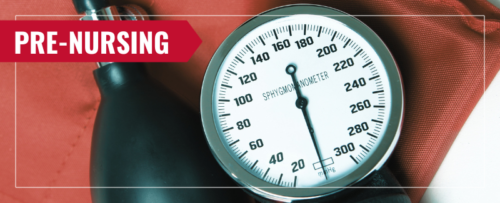
Nursing, a demanding but rewarding profession, is one of the most popular health careers. Nurses are critical because they expand access to care, improve the quality and safety of healthcare, and reduce healthcare costs.
The profession of nursing offers a wide variety of career opportunities through multiple levels of education and professional practice. Becoming a nursing assistant can be achieved in only a few weeks through a certification program, while a licensed practical nurse program requires up to two years of study. Registered Nurses (RNs) provide and coordinate patient care, educate patients and the public, and extend advice and support to patients and their families. They work in a wide range of settings, such as: acute care facilities, hospitals (every floor and department, including administration), clinics, primary care offices, insurance companies, surgical hospitals, nursing homes, hospice facilities, etc. Nurses can also continue their education in both a broad array of specialties as well as deep into an academic / research doctorate program.
Being a Registered Nurse means that you have taken and passed the National Council of State Boards of Nursing Licensure Examination (NCLEX). Degrees leading to the right to sit for the licensing examination are the Associate of Science in Nursing and the Bachelor of Science in Nursing. Advance practice degrees that allow one to sit for Advanced Practice Registered Nurse certification exams require a Master of Science in Nursing or a Doctor of Nursing Practice Degree. The PhD or Doctor of Philosophy in Nursing or the Doctor of Education EdD in Nursing degrees are open for those wishing to concentrate on original research or teaching in Schools of Nursing.
Nurses typically do the following:
- Record patients’ medical histories and symptoms.
- Give patients medicines and treatments.
- Set up plans for patients’ care or contribute to existing plans.
- Observe patients and record the observations.
- Consult with doctors and other healthcare professionals.
- Operate and monitor medical equipment.
- Help perform diagnostic tests and analyze results.
- Teach patients and their families how to manage their illnesses or injuries.
- Explain what to do at home after treatment.
Does UGA have a nursing program?
The University of System of Georgia Board of Regents has authorized the university to create a School of Nursing, which will offer a Bachelor of Science in Nursing at UGA as early as Fall 2027 for students who have completed prerequisites and core classes.
I am interested in nursing, what is the next step?
Once you have decided to pursue a career in nursing, you must then decide whether you wish to transfer to another institution with a formal nursing program or stay at UGA and finish your degree before entering a nursing program. Keep in mind the University of System of Georgia Board of Regents has authorized the university to create a School of Nursing, which will offer a Bachelor of Science in Nursing at UGA as early as Fall 2027 for students who have completed prerequisites and core classes.
Nursing Options
BSN: Bachelor of Science in Nursing: Transfer into a BSN program after completing the prerequisites and core classes. Normally students transfer out after their first two years at UGA. Keep in mind the University of System of Georgia Board of Regents has authorized the university to create a School of Nursing, which will offer a Bachelor of Science in Nursing at UGA as early as Fall 2027 for students who have completed prerequisites and core classes.
Fast Track BSN: Bachelor of Science in Nursing. Transfer into a BSN program after completing the prerequisites and core classes. Normally students transfer out after their first two years at UGA. The fast track programs usually require a higher GPA than the traditional BSN and include a summer semester of courses.
ABSN: Accelerated Bachelor of Science in Nursing: Can be completed after earning a four-year bachelor’s degree in a field other than nursing. Pre-requisite courses can be completed alongside the regular undergraduate coursework.
MSN: Direct Entry Master of Science in Nursing: Can be completed after earning a four-year bachelor’s degree in a field other than nursing. Pre-requisite courses can be completed alongside the regular undergraduate coursework.
MN+MSN: Three-year direct entry program. The first two years are the normal Master of Nursing, and the third year is to take your specialty boards and become a licensed NP in your specialty. Most of the time you must decide on your specialty when applying.
The links below provide basic information for students interested in attending a nursing program. Please see the sidebar for additional links that contain more in-depth information about applicant credentials, required coursework, and the process for applying to nursing programs.
Resources for Pre-Nursing Students
- Pre-Nursing Quick Facts
- Pre-Health Matrix
- UGA Pre-Professional Planner
- Join the Pre-Nursing Events Listserv
Helpful Handouts for Pre-Nursing Students
